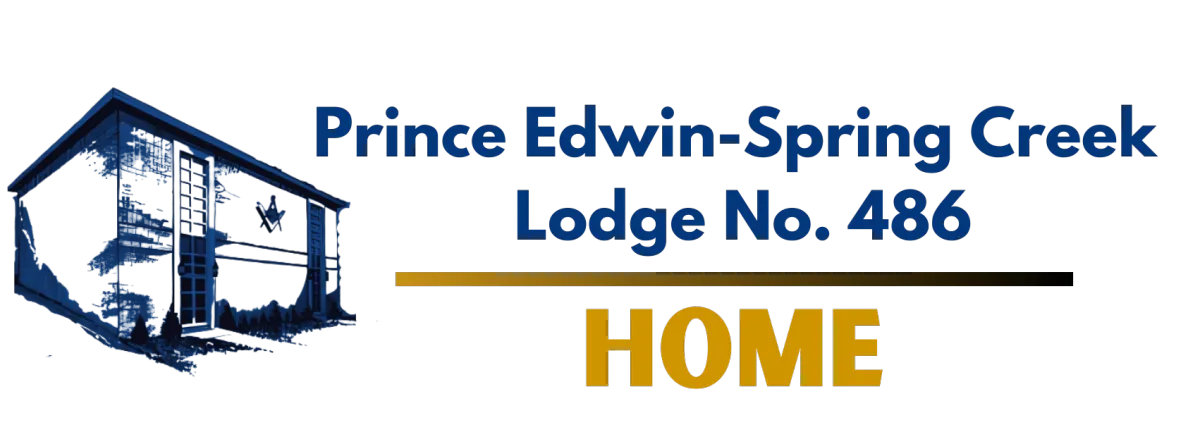Becoming A Mason
History of Freemasonry
The Fraternity of Free and Accepted Masons is the oldest, largest and most widely known fraternal organization in the world. Volumes have been written about it. Yet, to many, Freemasonry remains a mystery.
History
Some historians trace Freemasonry to the Tenth Century, B.C., during the building of King Solomon’s Temple. Records reveal that Freemasonry was introduced into England in 926 A.D. Many other historians believe that Freemasonry is directly descended from the association of operative masons, the cathedral builders of the Middle Ages, who traveled through Europe employing the secrets and skills of their crafts.
In the 17th Century, when cathedral building was on the decline, many guilds of stone-masons, known as “Operative Masons” or “Free Masons,” started to accept as members those who were not members of the masons’ craft, calling them “speculative Masons” or “Accepted Masons.” It was from these groups, comprised mostly of “Adopted or Accepted Masons,” that Symbolic Masonry or Freemasonry, as we know it today, had its beginning.
A more recent theory suggests that Freemasonry grew out of the survivors of the destruction of the Order of the Temple in 1314 by King Philip The Fair of France. Many Templars fled France and hid in England, Scotland and Ireland. To maintain their Order, they developed another organization, giving it a legendary ancient history to contribute to its cover from the authorities who wished it destroyed. John Robinson’s book, BORN IN BLOOD, is an excellent text describing this theory in detail.
Grand Lodges
In 1717, four Lodges of Freemasons meeting in London, England, formed the first Grand Lodge. The first Grand Lodge chartered Symbolic Lodges and Provincial Grand Lodges in many countries, including the United States. Today, there are more than 160 Grand Lodges in free countries of the world with a membership of more than 3.6 million. In the United States there are 51 Grand Lodges. There are approximately 1,600,000 Freemasons in the 51 Jurisdictions of the United States.
Symbolic Lodge
The basic unit of all Grand Lodges is the Symbolic Lodge, or “Blue Lodge,” as it is commonly known.
It is the Symbolic Lodge that issues petitions for initiation and membership, acts on petitions and confers the three Symbolic Degrees, known as the Entered Apprentice, Fellow Craft and Master Mason Degrees.
There are more than 430 Symbolic Lodges in the Jurisdiction of Pennsylvania with a membership of approximately 130,000.
Not Just A Man, A Mason
Freemasonry FAQ
WHAT IS FREEMASONRY?
Freemasonry is a brotherhood of men who share one common goal: To help each other become better men. It is the oldest, largest and most widely known fraternal organization in the world. Men from all different backgrounds and walks of life come together as equals and improve their character by applying the timeless virtues of brotherly love, charity and truth to their everyday lives.
WHAT ARE THE QUALIFICATIONS FOR MEMBERSHIP?
To qualify for membership, a petitioner must be male, at least 18 years of age and one who believes in the existence of a Supreme Being. He must be of good moral character, motivated to join for reasons unrelated to personal gain or profit, prompted by a favorable opinion of Freemasonry, interested in earning knowledge and willing to be part of the long-standing traditions and customs of the fraternity.
IS FREEMASONRY A RELIGION?
No. All who join Freemasonry must declare their belief in the existence of a Supreme Being and practice their own personal faith, but the fraternity is neither a religion nor a place to worship. Rather, it is a place where men of all monotheistic creeds can meet and focus on the shared values of peaceful human interaction that are common to all religions.
MUST ALL MASONS BE OBLIGATED ON THE BIBLE?
A primary requirement of a Freemason is a belief in a Supreme Being, whether He be called God, Allah, Jehovah or any other name utilized by one’s faith. Therefore, a candidate for Freemasonry should be obligated on a book he considers to be a Volume of the Sacred Law of his religious beliefs (e.g. Holy Bible, Torah, Koran).
WHAT ARE THE DEGREES OF FREEMASONRY?
The experience of becoming a member of a Masonic lodge is divided into ceremonial stages known as “degrees.” There are three degrees of Freemasonry: Entered Apprentice, Fellowcraft and Master Mason. The degrees are loosely based upon the journeyman system, which was used to educate medieval craftsmen. At each educational stage, a craftsman was required to achieve proficiency before moving to the next stage. By advancing through the degrees, a Freemason learns the moral and ethical lessons of the Masonic rite.
WHAT IS A MASONIC LODGE?
The term “lodge” comes from the structures the stonemasons built against the sides of the cathedrals during construction. In winter, when building had to stop, they lived in these lodges and worked at carving stone. Today, a Masonic lodge means two things: a group of Masons coming together in fellowship and, at the same time, the room or building in which they meet. No two Masonic lodges are the same; all have unique personalities driven by their members. The lodge typically consists of a room where official business and Masonic rituals are conducted, as well as several additional areas for brothers to share meals, spend time together and host social and charitable events.
WHERE DID THE TERM FREEMASON COME FROM?
The name dates back to the days when Freemasonry referred to those working in the trades. Numerous explanations have been suggested, such as: (a) Masons worked in free stone (which could be carved), and hence were called “free-stone masons,” later shortened to “freemasons;” (b) they were free men, not serfs; (c) they were free to move from place to place as they might desire; (d) they were given the freedom of the towns or localities in which they worked; (e) they were free of the rules and regulations that were usually imposed upon members of guilds.
WHICH U.S. PRESIDENTS WERE FREEMASONS?
George Washington, James Monroe, Andrew Jackson, James K. Polk, James Buchanan, Andrew Johnson, James A. Garfield, William McKinley, Theodore Roosevelt, William Howard Taft, Warren G. Harding, Franklin D. Roosevelt, Harry S. Truman and Gerald R. Ford. Some authorities also include Thomas Jefferson and James Madison, but documentary evidence is lacking. Lyndon B. Johnson received the Entered Apprentice Degree, but did not advance. Andrew Jackson (Tennessee) and Harry S. Truman (Missouri) were Grand Masters.
WHICH FAMOUS FOUNDING FATHERS WERE MASONS?
George Washington was a Mason and Benjamin Franklin served as the head of the fraternity in Pennsylvania, as did Paul Revere and Joseph Warren in Massachusetts. Other well-known Masons involved with the founding of America include John Hancock, John Sullivan, Marquis de Lafayette, Baron Fredrick von Stuben, Nathanael Greene, Joseph Warren and John Paul Jones. Another Mason, Chief Justice John Marshall, shaped the Supreme Court into its present form.
WHERE CAN ADDITIONAL INFORMATION CONCERNING FREEMASONRY BE OBTAINED?
By reaching out to one whom you know is a Mason, by clicking the contact us link below. Or, by clicking on the Petition link below and submitting the petition to a local lodge. You will need two Masons whom you know to sponsor you. If you do not know a Mason, or just have questions click the Contact Us link below and reach out to Prince Edwin Spring-Creek Lodge No. 486.

BECOME A FREEMASON
Freemasonry is a fraternity of men who share one common goal: To help each other become better men.
Better husbands, fathers, friends, leaders, learners and volunteers.


